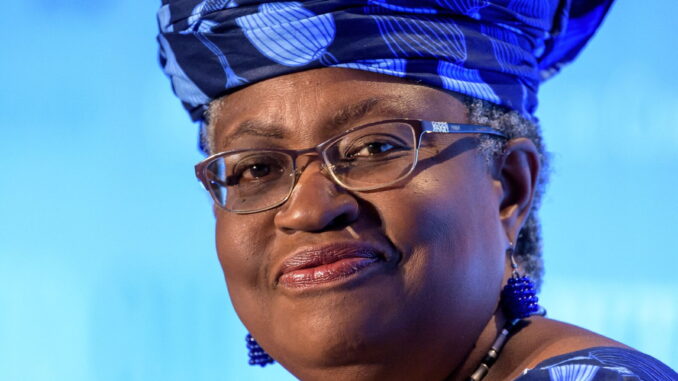
Introduction to Ngozi Okonjo-Iweala
Ngozi Okonjo-Iweala is a renowned Nigerian-American economist and international development expert. As the Director-General of the World Trade Organization (WTO) and a former Minister of Finance in Nigeria, she has made significant contributions to economic policy and trade at both national and global levels. This article explores her remarkable career, impact on global trade, and her pioneering role as a female leader in a traditionally male-dominated field.
Early Life and Education
A Strong Foundation
Born on June 13, 1954, in Ogwashi-Ukwu, Nigeria, Ngozi Okonjo-Iweala comes from a family that values education. She earned her bachelor’s degree in Economics from Harvard University and went on to obtain a Ph.D. in Regional Economics and Development from the Massachusetts Institute of Technology (MIT). Her strong educational background laid the foundation for her successful career in economics and public policy.
Key Positions and Achievements
Minister of Finance in Nigeria
Okonjo-Iweala served as Nigeria’s Minister of Finance twice, first from 2003 to 2006 and then from 2011 to 2015. During her tenure, she implemented crucial reforms aimed at stabilizing the country’s economy, reducing debt, and improving transparency in government finances. Her successful efforts in negotiating debt relief for Nigeria and her role in the country’s economic recovery earned her recognition as a formidable leader in economic management.
World Trade Organization (WTO)
In March 2021, Ngozi Okonjo-Iweala was appointed the first female and first African Director-General of the WTO. Her leadership at the WTO is aimed at addressing global trade issues, including the impacts of the COVID-19 pandemic on international trade and advocating for fair trade practices. She emphasizes the importance of inclusivity and sustainability in global trade, aiming to enhance the participation of developing countries in the global economy.
Advocacy for Global Development
Championing Sustainable Growth
Okonjo-Iweala has been a strong advocate for sustainable development, emphasizing policies that promote economic growth while considering social and environmental impacts. She has worked with various international organizations, including the World Bank, where she served as a managing director, focusing on poverty reduction and economic development in various countries.
Influencing Policy through Research
Her contributions to research and policy discussions have positioned her as a thought leader on issues of economic governance, global trade, and development. Okonjo-Iweala frequently writes and speaks on the need for innovative solutions to economic challenges, promoting inclusive policies that drive development and improve the quality of life for people around the world.
Impact and Legacy
A Role Model for Future Generations
As a leading female figure in economics and politics, Ngozi Okonjo-Iweala serves as a role model for aspiring female leaders. Her commitment to public service and her ability to navigate complex economic landscapes have inspired many, particularly in Africa, to pursue careers in economics, governance, and international relations.
Recognition and Awards
Okonjo-Iweala has received numerous awards and honors for her work, including being named one of Forbes’ 100 Most Powerful Women multiple times. Her efforts to promote economic development and trade have been recognized globally, establishing her as a key influencer in shaping international economic policies.
Conclusion
Ngozi Okonjo-Iweala’s groundbreaking career reflects her dedication to economic development and equitable trade practices. As the first woman and African to lead the WTO, her influence continues to shape the future of global trade. Through her advocacy and leadership, Okonjo-Iweala is not just a significant figure in economics—she is a trailblazer for future generations seeking to make a positive impact in the world.
Leave a Reply